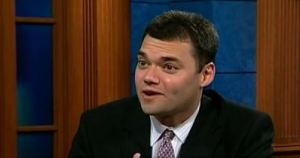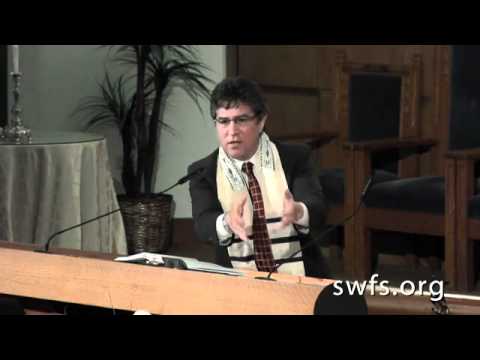
Peter Beinart, former editor of The New Republic, has recently entered the ideological enterprise of delegitimization – convinced that he alone possesses wisdom about how to solve the Israeli-Palestinian Conflict which has eluded Israeli leaders for over six decades.
Beinart’s book, The Crisis of Zionism, doesn’t merely argue that Israel should withdrawal from the West Bank but, in criticizing the occupation, evokes the ugly specter of racism and segregation in the pre-Civil Rights American South.
From his book blurb:
An American Jewish community that sent its sons and daughters to Mississippi when African-Americans were denied equal citizenship merely because they were not white cannot turn away when millions of West Bank Palestinians are denied rights simply because they are not Jews.
You understand that only by giving Palestinians their own country in the West Bank and Gaza Strip can Israel again become a Jewish state that offers the right of citizenship to all the people within its domain.
And you understand that if Israel collapses as a democratic Jewish state, Zionism itself will die.
Of course, like so much of what passes for liberal thought on Israel, Beinart has almost nothing to say on what he expects of the Palestinians in the context of his hopes for peace and co-existence.
Does he expect them to end antisemitic incitement or take steps to reform a political culture which honors terrorism? Does he demand that they build democratic institutions, hold free and fair elections and extend even nominal rights to women, gays and religious minorities?
No, Beinart’s liberal racism can not assign even the most rudimentary moral agency to Palestinians – the quintessential ethnic abstraction.
Further, does Beinart even wonder what the real-life results will be if Israel abides by his advice and withdrawals to 1967 borders, and what will happen if, as in Gaza in 2005 and S. Lebanon in 2000, such withdrawals only embolden the most violent terrorist movements, and make Israelis even more vulnerable to rocket fire and other acts of deadly terrorism?
No, there isn’t a crisis of Zionism.
There’s a crisis of his brand of American Jewish liberalism – “intellectuals’ who have lived in their own mind too long, truly incapable of imagining life outside the safety of their own cognitive bubbles.
Such political sages are not equipped with the moral imagination necessary to empathize with a modern Jewish state under siege, surrounded by hideously antisemitic Islamist terrorist movements who are quite explicit in their malevolent designs.
Do such sensitive souls ever wonder why Palestinian society never seems to produce their own version of Peter Beinart? Why don’t such critics ever demand reciprocal Palestinian self-reflection or empathy for the (Jewish) “other”?
Finally, does Peter Beinart ever wonder what the consequences will be if he’s wrong?
If the policies he advocates lead not to peace but to war, to more bloodshed and greater Jewish suffering, will he say he’s sorry? Will he finally repudiate his naive belief that “they are just like us”?
Of course not.
He will remain far removed from the deadly serious issues of war and peace in the Middle East.
He’ll write another book. He’ll become a fellow at another think tank.
Peter Beinart can opine on issues with the liberating sense of his own impunity to their potential real-world consequences, knowing that he will never, ever have to deal with the dangers paved by his best intentions.
Israelis like me, my friends, my wife and family, however, aren’t so privileged.
(Finally, here’s a powerful Shabbat sermon by Reform rabbi Ammiel Hirsch against Beinart’s call for BDS against Israelis living beyond the green line, from his pulpit at the Stephen Wise Free Synagogue in Manhattan.)
Related articles on Beinart’s assault on Israel’s legitimacy (H/T Challah Hu Akbar):
Abraham Foxman
Ronn Torossian
Rob Eshman
Ron Radosh
Fresno Zionism
Michael Ross
Soccer Dad
Sol Stern
Donald Isler
Soccer Dad II
Richard Baehr
Avi Mayer
Jeffrey Goldberg II
Yehuda Mirsky
Ronald Halber
David Harris
Steve Bayme
Ruthie Blum





